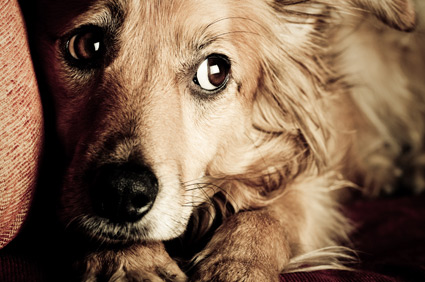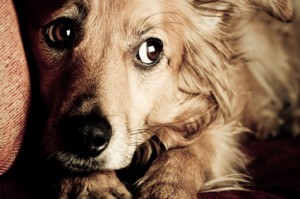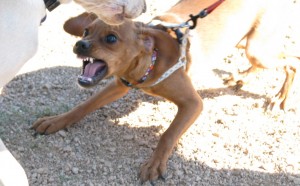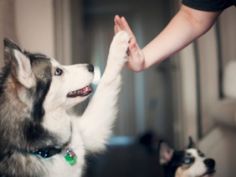
I intended this article to be in continuation of my previous series ‘ Sensible Dogs’ but due to some practical difficulties, what i intended, couldn’t happen.
So here’s another standalone article series on dogs and the owners’ generosity, some sneaky-peaky habits of your dog and the last part being – dogs understanding your dislike/fear.
But before I continue, I want to clarify that some parts of this article are a mere observation and may/may not be backed with appropriate statistical data to come to a concrete conclusion. Reader’s discretion is of utmost importance.
They can sense your generosity
Did you ever observe your dog when you did something generous? Do observe him the next time. I will not tell you how he might react, observe it for yourself and comment.
How do we humans form opinions about our fellow humans? What, according to general standards, would be a sign of a good human being? A good human is expected to have: high regards to morality, sympathy, empathy, compassion, kindness and fairness. So if you were to test a person on all the above mentioned aspects, by a single deed, which deed would it be? Ofcourse – a deed of generosity. According to common accepted values, a generous person is expected to be a good person, because sympathy is the basis of justice.
As mentioned in the first article of the series ‘Sensible Dogs’, dogs have a high sense of justice. They find generous human beings as just and fair. If you are generous to your fellow humans, they think that you would be generous with them too.
University of Milan conducted a study in which a group of people were asked to share food with a poor homeless man. Another set of people were asked to reprimand the poor homeless man. Both these groups were observed by a set of dogs. When the people from both the groups called the dogs (at the same time), almost all the dogs responded to the generous group. As it is widely said “generosity is as much about justice as it is about kindness”.
So, your dog also knows when you are generous and when you are snub. The reason why they are such extraordinary pets, is that they are highly susceptible to morality and other emotions.
They know when you are not looking
After reading the title of this part you might say: “Genius! Ofcourse my dog knows when I’m not looking. He has got eyes you see? *stare*”
Ofcourse your dog has got eyes, but the point I’m trying to make is: even if dogs think of themselves as gatekeepers of morality, they also know how to get away with small risks.
Consider yourself as participating in a study, where you have kept a delicious looking cake on a table. This table is accessible to your dog and your dog is very well capable of eating that cake.
When you are looking at them, they would not even consider the idea of stealing that cake but when you are out of sight, or even when you are not looking at them, they find the cake hard to resist. And in an opportune moment, they usurp the cake in seconds.
For dogs, food is one the very limited sources of unlimited pleasure. This has less to do with taste or quantity and has more to do with ease of access. They do not have as easy an access to food as we do. And that makes it a rare commodity.
This part is easily misunderstood by people, but even the most loyal humans are vulnerable to things that are hard to achieve. I do not intend to say that your dog is capable of much more serious in-obedience, but your dog is not as morally right as it expects you to be.
They can sense if you do not like someone/something
This is similar to that of fear. When you are afraid, your body secretes adrenaline that initiate a series of chain reactions in your body. The only difference here is that when you look at someone/something that you like, your body secretes serotonin and dopamine that makes you feel joyous, ecstatic and cheerful. In a same way, your body secrets another set of hormones that trigger hate, disgust, anger and distrust.
Here’s an example. If you see someone (you do not like) approaching you, you inadvertently communicate this to your dog. If he can smell a teaspoon of sugar in million gallons of water (remember?), then he can smell the subtle chemical changes occurring in your body through your odour too. Your dog will then howl or growl or bark or plunge at the person approaching you.
More often than not, serious injuries take place because of such impulsive reactions of dogs. To avoid such situations, it is always advisable to keep yourself in control since you are the triggering factor for your dogs. (I know it is next to impossible but one can atleast try!) And if you cannot keep yourself in control, then try and keep your dog in your control. You might think: “Aha! That should be easy!” But it is not at all an easy task to control a dog (especially big ones like Labrador, and other Mastiffs).
A person who cannot practice self-control or self-discipline, cannot bring his dog to listen to him. Now you might understand the reason why so many pet parents find it difficult to train their pets. Please keep in mind that your reaction (however subtle it is) is the basis of your dog’s reaction. Your behaviour can play a major role in keeping your dog at ease, but it is also capable of inducing negative reactions to your dog thus increasing the chances of confrontation that might lead to grievous injuries to you, your pet or to the other person.
The next article in this series would talk about some other emotions/feelings/attitude that dogs comprehend and react to.







